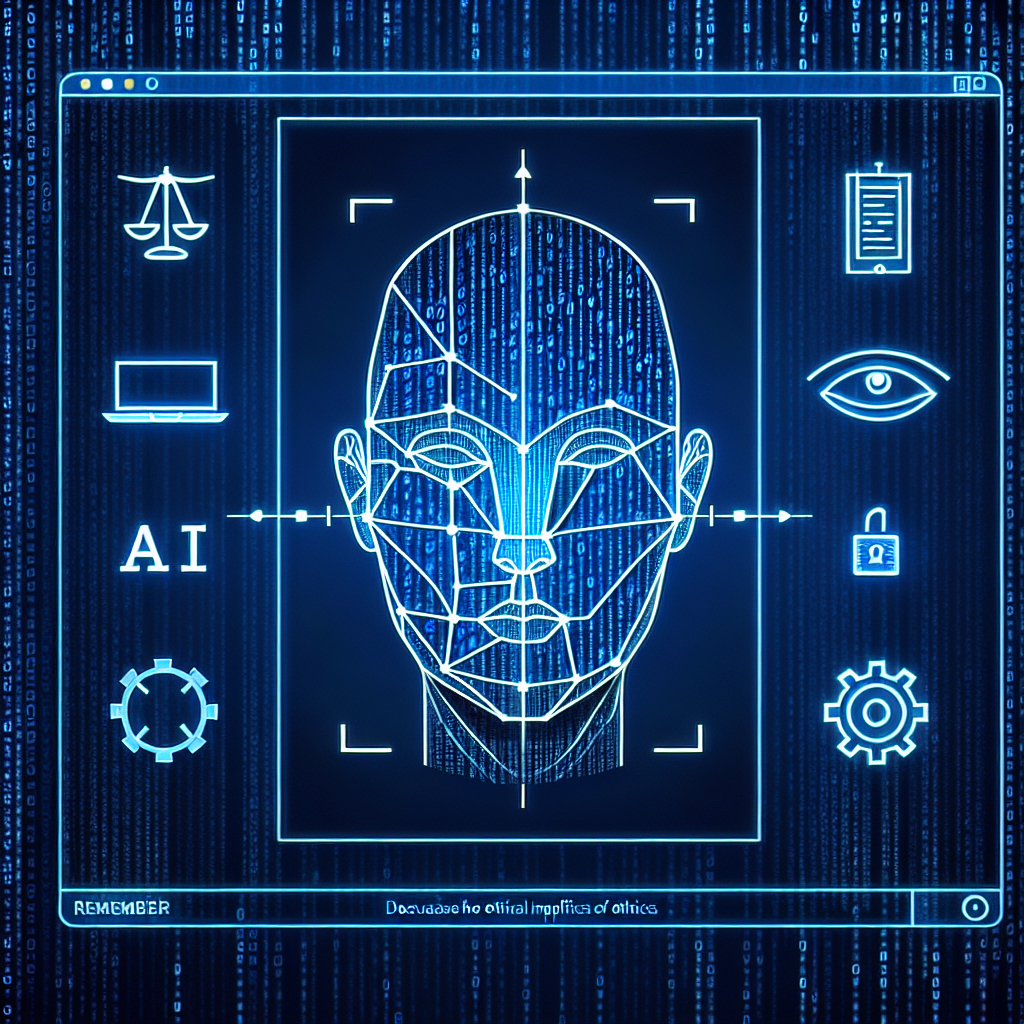In recent years, the use of artificial intelligence (AI) facial recognition technology has become increasingly prevalent in various industries, including law enforcement, retail, and social media. While this technology has the potential to revolutionize the way we interact with the world around us, it also raises a myriad of ethical implications that must be carefully considered.
One of the primary concerns surrounding AI facial recognition technology is the issue of privacy. By scanning and analyzing the faces of individuals without their consent, this technology has the potential to infringe upon people’s right to privacy. In a world where our every move is being tracked and monitored, the use of facial recognition technology could further erode our sense of autonomy and freedom.
Additionally, there are concerns about the accuracy and bias of AI facial recognition technology. Studies have shown that facial recognition systems are more likely to misidentify people of color, women, and young people, leading to potential discriminatory outcomes. This raises questions about the fairness and reliability of using this technology in decision-making processes, such as identifying criminal suspects or making hiring decisions.
Furthermore, there are concerns about the potential for misuse of AI facial recognition technology by authoritarian governments and oppressive regimes. By using this technology to track and surveil their citizens, these governments could further suppress dissent and violate human rights. The lack of oversight and regulation around the use of facial recognition technology only exacerbates these concerns.
In response to these ethical implications, there have been calls for greater transparency and accountability in the development and deployment of AI facial recognition technology. Companies that develop and use this technology must be more transparent about how it works, what data is being collected, and how it is being used. Additionally, there needs to be clear guidelines and regulations in place to ensure that the use of facial recognition technology is ethical and respects individuals’ rights to privacy and autonomy.
One of the key challenges in addressing the ethical implications of AI facial recognition technology is striking a balance between the potential benefits of this technology and the risks it poses. On one hand, facial recognition technology has the potential to enhance security, improve customer service, and streamline processes. On the other hand, it also has the potential to infringe upon privacy, perpetuate bias, and violate human rights.
As we continue to explore the ethical implications of AI facial recognition technology, it is important to engage in thoughtful discussions and debates about the use of this technology. By considering the perspectives of various stakeholders, including technology developers, policymakers, and civil society organizations, we can work towards developing ethical guidelines and regulations that ensure the responsible use of facial recognition technology.
In conclusion, the ethical implications of AI facial recognition technology are complex and multifaceted. While this technology has the potential to bring about significant benefits, it also raises serious concerns about privacy, bias, and human rights. As we navigate the ethical challenges posed by facial recognition technology, it is essential that we prioritize transparency, accountability, and respect for individuals’ rights. Only by engaging in open and honest dialogue about these issues can we ensure that AI facial recognition technology is used in a responsible and ethical manner.
FAQs:
Q: How does AI facial recognition technology work?
A: AI facial recognition technology works by capturing and analyzing images of individuals’ faces to identify unique facial features. These features are then compared to a database of known faces to determine a match. The technology uses algorithms and machine learning to improve its accuracy over time.
Q: What are some of the potential benefits of AI facial recognition technology?
A: Some potential benefits of AI facial recognition technology include enhanced security, improved customer service, and more efficient processes. For example, facial recognition technology can be used to unlock smartphones, secure buildings, and personalize customer experiences.
Q: What are some of the potential risks of AI facial recognition technology?
A: Some potential risks of AI facial recognition technology include violations of privacy, perpetuation of bias, and misuse by authoritarian governments. There is also concern about the lack of regulation and oversight surrounding the use of this technology.
Q: How can we address the ethical implications of AI facial recognition technology?
A: To address the ethical implications of AI facial recognition technology, we need to prioritize transparency, accountability, and respect for individuals’ rights. This includes being more transparent about how the technology works, what data is being collected, and how it is being used. Additionally, there needs to be clear guidelines and regulations in place to ensure that the use of facial recognition technology is ethical and respects individuals’ rights.

